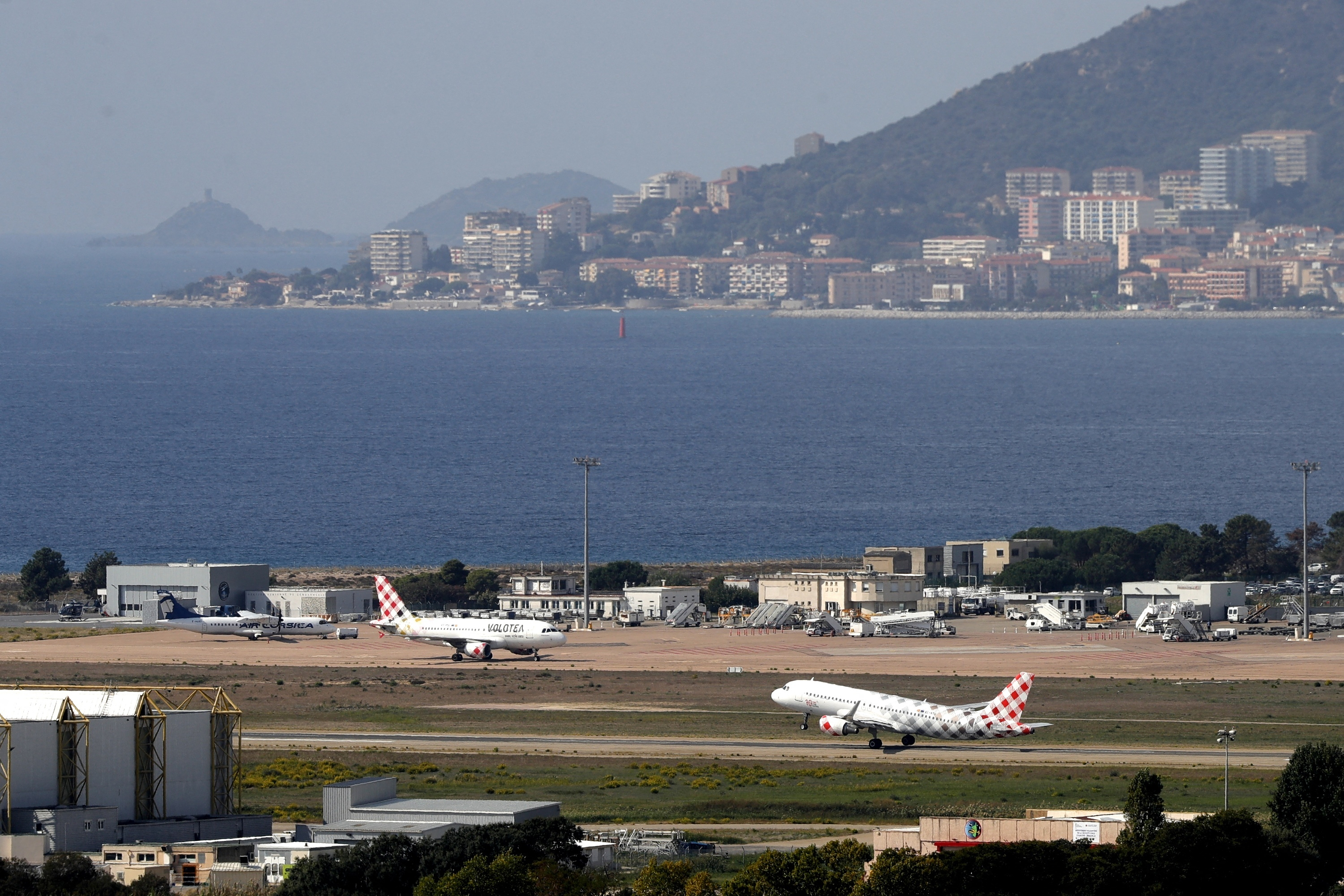The hope that the price increase might already have peaked has not been fulfilled for Great Britain. Consumer prices continued to rise in October. At 11.1 percent, inflation was once again one percentage point higher than in the previous month. This value is the highest since 1981.
Things are different in the United States, for example: price developments there have weakened since the summer. Inflation fell from a high of 9.1 percent to 7.7 percent last year. Observers in Europe are also waiting for a comparable trend reversal.
UK price increases were mainly driven by the cost of energy supplies, ie electricity and gas, which rose in early October. On average, households paid 88.9 percent more for energy in October than a year earlier, according to Office for National Statistics (ONS) data. Food has also become significantly more expensive – by 16.4 percent.
The stubborn price increases are bringing interest rates back into focus. Just a few days ago, the Bank of England warned investors that only a moderate increase in interest rates would be necessary. "Outsized consumer price inflation and significant momentum in core inflation, coupled with signs of a tight labor market, support our expectation that the Bank of England will make another significant [rate hike] in December," said George Buckley, analyst at Nomura .
At their meeting in early November, the British central bankers raised interest rates by 0.75 percentage points to three percent. However, Governor Andrew Bailey had warned of a long-lasting recession that could last into the first half of 2024. Further significant interest rate hikes have therefore been considered unlikely so far.
But the latest data suggest inflation will remain uncomfortably high, UBS analyst Anna Titareva warned, with the possibility of further spikes. The risk: If the central bank tightens monetary policy too much, this could cool down the economy excessively and the recession would be even more severe than expected.
"It feels like a 1970s time warp with runaway food prices, crippling public sector strikes and concerns about energy supplies," said Susannah Streeter, an analyst at Hargreaves Lansdown. As prices continue to rise, calls for wage increases will continue.
Years of austerity programs have led to painful cuts in real wages, particularly among public sector workers. Two groups, including hospital nurses and ministry employees, announced strikes last week with which they want to push through higher wages. Numerous unions are currently voting on possible industrial action.
The prices would have risen much more sharply without the government cap on energy prices that has been in effect since the beginning of October. According to ONS calculations, inflation would have been 13.8 percent. A government energy package to support households and businesses means a household will pay £2,500 (€2,856) a year on average consumption. Without the government guarantee, which is valid for six months, the price would be more than £1000 more.
"With the protective effect of the energy price guarantee becoming so evident in the data, the Chancellor of the Exchequer will come under even greater pressure to keep the measure in place for the foreseeable future," said Kitty Ussher, chief economist at the Institute of Directors.
On Thursday, Treasury Secretary Jeremy Hunt will unveil an emergency budget with measures to fund a multi-billion dollar fiscal gap. Among other things, it was caused by the slowdown in economic growth coupled with significantly higher debt service due to rising interest rates. More painful news is likely to come to the British. Hunt has already promised tax increases in addition to government spending cuts.
Disposable income will thus continue to shrink for large parts of the population. To make matters worse, many households will be hit by the higher interest rates immediately or in the coming months, since mortgage financing in the country is largely variable or fixed for a maximum of two years.
In the face of these multiple price shocks, more and more Britons are living off their savings, economists at the National Institute of Economic and Social Research (NIESR) think tank warn. In any case, inflation hits poorer households harder because they spend a higher proportion on food and energy. Inflation for the group of the ten percent poorest households is currently 12.5 percent. For the tenth of the wealthiest, it is 9.6 percent.
Adrian Pabst, deputy director of NIESR, warned that one in five households in the country could be without any financial buffer by spring 2024. "With six million households set to run out of savings by April 2024, we urgently need targeted action to help those most in need."
"Everything on shares" is the daily stock exchange shot from the WELT business editorial team. Every morning from 7 a.m. with the financial journalists from WELT. For stock market experts and beginners. Subscribe to the podcast on Spotify, Apple Podcast, Amazon Music and Deezer. Or directly via RSS feed.

 His body naturally produces alcohol, he is acquitted after a drunk driving conviction
His body naturally produces alcohol, he is acquitted after a drunk driving conviction Who is David Pecker, the first key witness in Donald Trump's trial?
Who is David Pecker, the first key witness in Donald Trump's trial? What does the law on the expulsion of migrants to Rwanda adopted by the British Parliament contain?
What does the law on the expulsion of migrants to Rwanda adopted by the British Parliament contain? The shadow of Chinese espionage hangs over Westminster
The shadow of Chinese espionage hangs over Westminster What High Blood Pressure Does to Your Body (And Why It Should Be Treated)
What High Blood Pressure Does to Your Body (And Why It Should Be Treated) Vaccination in France has progressed in 2023, rejoices Public Health France
Vaccination in France has progressed in 2023, rejoices Public Health France Food additives suspected of promoting cardiovascular diseases
Food additives suspected of promoting cardiovascular diseases “Even morphine doesn’t work”: Léane, 17, victim of the adverse effects of an antibiotic
“Even morphine doesn’t work”: Léane, 17, victim of the adverse effects of an antibiotic Collection of booklet A stalls in March
Collection of booklet A stalls in March Kering expects a 40 to 45% drop in operating profit in the first half
Kering expects a 40 to 45% drop in operating profit in the first half Smartphones, televisions, household appliances… MEPs adopt a “right to repair”
Smartphones, televisions, household appliances… MEPs adopt a “right to repair” Fintechs increasingly focused on business services
Fintechs increasingly focused on business services The standoff between the organizers of Vieilles Charrues and the elected officials of Carhaix threatens the festival
The standoff between the organizers of Vieilles Charrues and the elected officials of Carhaix threatens the festival Strasbourg inaugurates a year of celebrations and debates as World Book Capital
Strasbourg inaugurates a year of celebrations and debates as World Book Capital Kendji Girac is “out of the woods” after his gunshot wound to the chest
Kendji Girac is “out of the woods” after his gunshot wound to the chest The Court of Auditors scrutinizes the management and projects of the Center Pompidou
The Court of Auditors scrutinizes the management and projects of the Center Pompidou Skoda Kodiaq 2024: a 'beast' plug-in hybrid SUV
Skoda Kodiaq 2024: a 'beast' plug-in hybrid SUV Tesla launches a new Model Y with 600 km of autonomy at a "more accessible price"
Tesla launches a new Model Y with 600 km of autonomy at a "more accessible price" The 10 best-selling cars in March 2024 in Spain: sales fall due to Easter
The 10 best-selling cars in March 2024 in Spain: sales fall due to Easter A private jet company buys more than 100 flying cars
A private jet company buys more than 100 flying cars This is how housing prices have changed in Spain in the last decade
This is how housing prices have changed in Spain in the last decade The home mortgage firm drops 10% in January and interest soars to 3.46%
The home mortgage firm drops 10% in January and interest soars to 3.46% The jewel of the Rocío de Nagüeles urbanization: a dream villa in Marbella
The jewel of the Rocío de Nagüeles urbanization: a dream villa in Marbella Rental prices grow by 7.3% in February: where does it go up and where does it go down?
Rental prices grow by 7.3% in February: where does it go up and where does it go down? Europeans: “All those who claim that we don’t need Europe are liars”, criticizes Bayrou
Europeans: “All those who claim that we don’t need Europe are liars”, criticizes Bayrou With the promise of a “real burst of authority”, Gabriel Attal provokes the ire of the opposition
With the promise of a “real burst of authority”, Gabriel Attal provokes the ire of the opposition Europeans: the schedule of debates to follow between now and June 9
Europeans: the schedule of debates to follow between now and June 9 Europeans: “In France, there is a left and there is a right,” assures Bellamy
Europeans: “In France, there is a left and there is a right,” assures Bellamy These French cities that will boycott the World Cup in Qatar
These French cities that will boycott the World Cup in Qatar Football: VAFC supporters are ironic after their descent into National
Football: VAFC supporters are ironic after their descent into National Tennis: Carlos Alcaraz should play in Madrid
Tennis: Carlos Alcaraz should play in Madrid Football: victim of discomfort in the middle of a match in mid-April, Evan Ndicka will resume training with AS Roma
Football: victim of discomfort in the middle of a match in mid-April, Evan Ndicka will resume training with AS Roma Ligue 1: PSG almost champion, OM, shock for the C1… 5 reasons to follow an exciting evening
Ligue 1: PSG almost champion, OM, shock for the C1… 5 reasons to follow an exciting evening


















